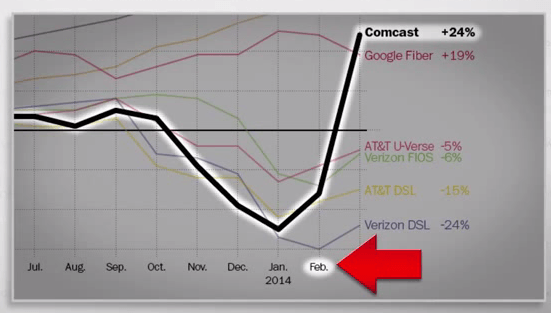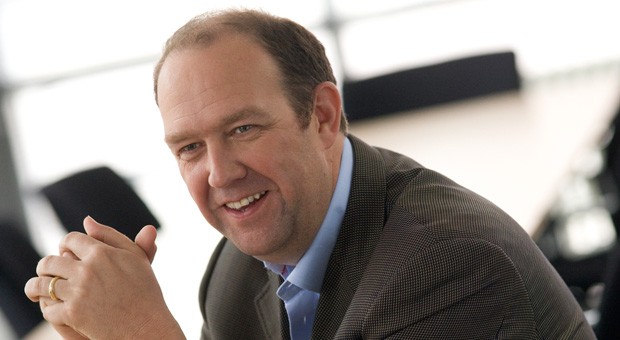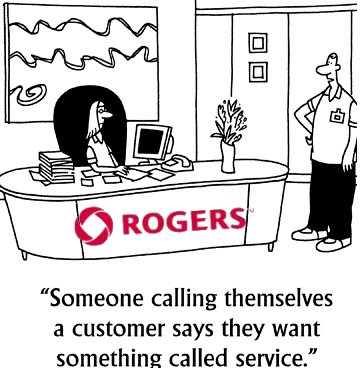
Toy Alarm: No peace of mind here.
A Houston couple paid Comcast $30 a month over seven years for Comcast’s home security system they believed would help keep them safe. But the alarm system hadn’t worked right from the day Comcast’s technicians installed it, and the cable company’s final offer of compensation was a $20 service credit.
Understandably, the couple wasn’t happy paying for Comcast’s pretend peace of mind.
“I’m a loyal customer and my thing is I don’t mind paying for a service if you’re providing the service,” Lisa Leeson told KPRC-TV, “but they weren’t.”
Comcast’s Insecurity System finally revealed its true self one windy February day. The Leeson family had left to do some errands and just as they had done more than 2,500 times before over the past 80 months, they armed Comcast’s home security system from its control panel before heading out.
“We would set it,” explained Leeson. “It would make the little noise that it makes like it was activating.”
When they arrived home, the family was surprised to find their back door wide open. Fearing a break-in, they wondered why Comcast’s alarm wasn’t blaring, with notified authorities standing by to investigate.
Despite more than 26,000 burglaries in Houston every year, the Leeson family was lucky. A wind gust had blown the door open and their possessions were safe. The revelation the family was robbed anyway only came after calling Comcast to ask why their alarm never went off.
A representative promptly told the family it had monitored the status of the Leeson’s alarm 24/7 for the last seven years and it was offline for almost the entire time. Comcast knew about its non-security system since 2007, but never bothered to tell the family. A follow-up visit from a Comcast technician this month quickly revealed the alarm was installed improperly by the cable company.
“It was unable, even if wanted to, to actually call the police and or Comcast once it was activated,” explained Leeson.
So ultimately whose fault is it that Comcast’s home security system never worked? The company that improperly installed it and knew it wasn’t working for the duration of 80 monthly payments it faithfully collected for service never rendered, or the customer?
In the corporate world of Comcast, it’s absolutely the customer’s fault — exactly what both a customer service representative and a corporate spokesman told the Leeson family.
A Comcast customer service representative was only willing to offer a one-time $20 “inconvenience credit” and the corporate spokesman apologized but pointed to a line in Leeson’s alarm agreement where she agreed to “test her system on a regular basis.”
It simply wasn’t good enough to trust Comcast’s alarm control panel notifying the family the alarm was armed and security monitoring was enabled. She’d have to trigger the system, potentially annoying the neighbors and first responders to prove the system worked properly.
Houston police and fire officials beg to differ.
In an ongoing effort to reduce costly and unnecessary false alarms, the city has implemented alarm permit and penalty fees for wasting the time of emergency personnel.
 A residential burglar alarm in the city of Houston requires an annual permit ranging in cost from $37-50. A fire alarm permit costs $80.29 the first year, $53.52 each year thereafter. Three false burglar alarm calls are allowed without a charge with a burglar alarm permit per year. The 4th and 5th false alarm call is chargeable at $50.00 each and the 6th and 7th call is chargeable at $75.00 each. Thereafter each false alarm call is chargeable at $100.00 each. Permits are subject to revocation after the 7th false call. Burglar alarm systems without a permit are chargeable at $107.05 per response and/or no response.
A residential burglar alarm in the city of Houston requires an annual permit ranging in cost from $37-50. A fire alarm permit costs $80.29 the first year, $53.52 each year thereafter. Three false burglar alarm calls are allowed without a charge with a burglar alarm permit per year. The 4th and 5th false alarm call is chargeable at $50.00 each and the 6th and 7th call is chargeable at $75.00 each. Thereafter each false alarm call is chargeable at $100.00 each. Permits are subject to revocation after the 7th false call. Burglar alarm systems without a permit are chargeable at $107.05 per response and/or no response.
Hold-up/panic alarm systems are allowed one false call without charge with a hold-up/panic permit. Thereafter the 2nd call is chargeable at $128.45, the 3rd false call at $256.92 and the 4th false call is chargeable at $385.37. Thereafter the 5th false alarm and above are chargeable at $513.84 (each). Panic alarm systems without a permit are chargeable at $282.61 per response and/or no response.
False fire alarms carry penalties up to $385.37 per incident with a $115.61 collection fee.
After a local television station got involved in the dispute, Comcast softened their hard-line and refunded every penny Leeson paid for the home security system that had left the family vulnerable since the day Comcast incorrectly installed it.
But after what the Leeson family endured, other alarm system customers should check their contracts and make sure they verify their system is working properly. Don’t depend on the alarm provider to notify you.
Most modern alarm systems alert the monitoring company when activated. That company in turn notifies the police, fire department or ambulance. All three agencies recommend using a monitoring company to reduce the instances of false alarms. Older systems often used a built-in message tape recorded by the homeowner. When the alarm triggered, the system would phone 911 and play back the recorded message. Those systems are responsible for the largest percentage of false alarms.
Comcast says customers with its XFINITY alarm can test their systems using the My Account app on their smartphones. The Leeson family uses an older model Comcast security system that doesn’t work with the app.
[flv]http://www.phillipdampier.com/video/KPRC Houston Comcast Insecurity System 5-28-14.flv[/flv]
KPRC in Houston has words of wisdom for Comcast security system owners. Are you really protected? (2:07)


 Subscribe
Subscribe


 One Mooresville resident was suspicious of the town’s motives, however.
One Mooresville resident was suspicious of the town’s motives, however.


 Several long time Rogers executives are out the door, either voluntarily or quietly pushed out.
Several long time Rogers executives are out the door, either voluntarily or quietly pushed out.
